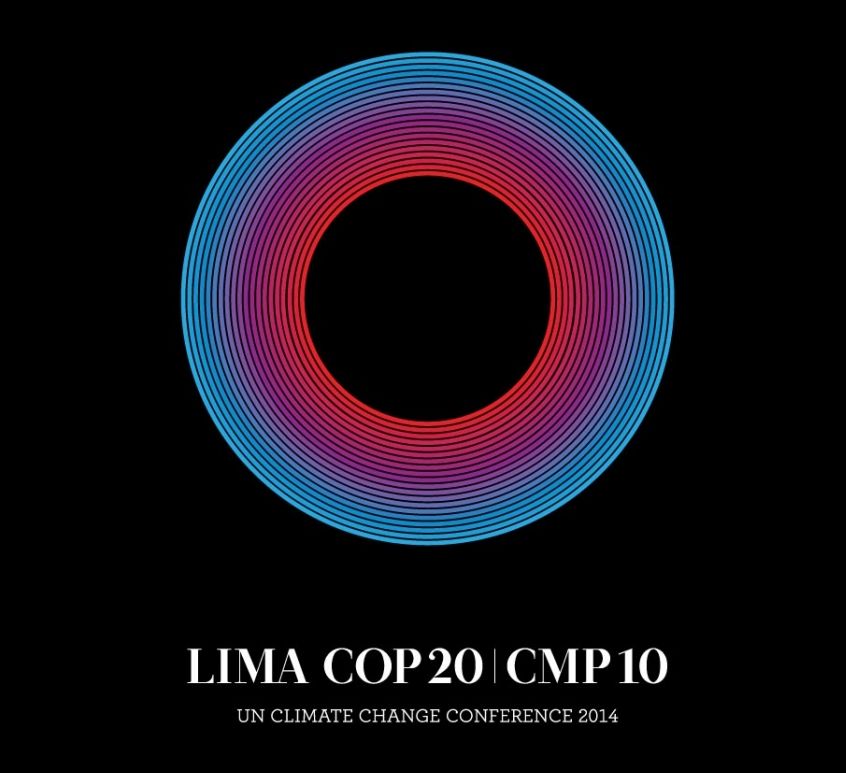 By Mikey Kohlberg
By Mikey Kohlberg
There is no time to waste on Climate Change, so I will dive right into this week’s post! According to this United Nations Press Release, the COP 20 climate talks held in Lima, Peru earlier this December were intended to “Build on New York City’s UN Climate Summit of September of 2014” after the #PeoplesClimateMarch. The talks that center around the UN’s Sustainable Development Goals, or SDG’s, seem simple enough when you take a look (Please check them out!). However, they are ideals that run into real world complications from corporate and political interests which often compete with environmental and humanitarian needs. My goal in blogging to you, dear reader, is to summarize how some of these complications relate to 2014’s COP 20 results and the future of international climate negotiation.
According to the UN Press Release, there have been concrete accomplishments that set the stage for next year’s Climate Summit in Paris. Naturally, the UN is going to say positive things about their own conference, so their boastings need to be taken with a few grains of salt.
One such area of contention that seems to be sugar coated is the global commitment to financing the mitigation of climate change. Apparently for the first time ever, total assets of the Green Climate Fund were measured at around $10.2 billion US dollars. This is in response to the pledge of industrialized nations to raise $100bn by 2020 for “concrete mitigation actions“, which was agreed upon in the Cancun Conferences of 2010. Although this sounds like good news, it is still unclear if these industrialized nations are taking mitigation steps seriously. Are they just an effort to look good in front of the World? Is the money really being promised with a legitimate effort at mitigating climate change?
Ahmed Sareer, negotiator for the Maldives, voices his concern in a Guardian article saying, “There has been a clear commitment of $100bn a year but how are we really being offered? Even when they make those pledges how do we know how much is going to materialise? There is no point of knowing that behind the wall there is a big source of funds available unless we can reach it. We are told it is there in a nice showcase, but we don’t get to meet it. We don’t get to access it. These are difficult issues for us.”
Also, the Environment Minister of India, Prakash Javadekar, expressed his disappointment towards the developed nations pledge of $100 billion by 2020:
“We are upset that 2011, 2012, 2013 – three consecutive years – the developed world provided $10bn each year for climate action support to the developing world, but now they have reduced it. Now they are saying $10bn is for four years, so it is $2.5bn”
Although some aspects of the conference seem to be positive at a first glance, many times with UN Climate Conferences there is more to the story. Another self-proclaimed achievement of the COP 20 in Lima notes that many Latin American countries have submitted their carbon emissions measurements. The UN says this data would encourage funding for UN programs like REDD (Reducing Emissions from Deforestation and Forest Degradation) and allow them to sell off undeveloped forest regions for carbon offsetting. And although REDD is widely supported- even by Jane Goodall, who is seen as one of the world’s leading environmental activists- as a good solution to deforestation, there is serious controversy as to whether the organization helps to reduce deforestation and carbon emissions.
Anne Peterson, from the Global Justice Ecology Project, reveals in a Democracy Now! interview that ,“REDD is really — has been designed as a way for — and is being pushed by the United States — as a way for industries and Northern countries, industrialized nations, to avoid actually reducing their emissions at the source. So, countries and companies can continue polluting by saying that they’re protecting forests somewhere else that will supposedly sequester the carbon that they’re putting out into the atmosphere. Unfortunately, there’s absolutely no credible science behind the notion of offsets. So, in fact, what’s going to happen is, because they’re not reducing their pollution, because they’re not reducing their carbon emissions, global warming will continue, which will inevitably damage, destroy and completely eliminate forests.”
But proponents of REDD’s implementation say that it reduces emissions while respecting indigenous rights. Steve Zwick writes in his article in The AnthropoZine that “Indigenous people have traditionally been the best stewards of the forest, and well-run REDD Projects aim to harness this stewardship by partnering with them.”
Others disagree. Chief Ninawa Huni Kui, president of the Federation of the Huni Kui and an indigenous rights activist in Brazil, traveled to Lima for the COP 20 to voice the opposition of 10,400 indigenous Brazilians in 90 villages. In Amy Goodman’s interview, he says, “We are saying that the climate change proposals that the government is tabling here at the United Nations are false solutions to climate change. Specifically, we are here to denounce REDD—R-E-D-D, Reducing Emissions from Deforestation and Forest Degradation.” He states in the same interview that, “The impacts (of REDD) are the following: The community is no longer to fish in their own land, to cultivate food, to practice agriculture. All of these activities are banned and have been declared illegal, and people are jailed if they participate in agriculture or go fishing.”
So basically, the holistic goodness of REDD remains a controversy that is intricately woven with indigenous rights and international policy. Perhaps I will cover this controversy in depth at a later date, so until then, stayed tuned! I hope my words here spark your interest and participation in these climate change debates because they are shaping our future. The climate crisis is dire and needs real action. We at TMSOG want all the good-hearted people in the world to be informed so that hopefully we can have a unified political voice aimed at making the world a slightly better place to live in, if not for us, then for our grandchildren. As Dr. Emanuel Bronner, the magic soap creator, preached, “We are all One, or None!
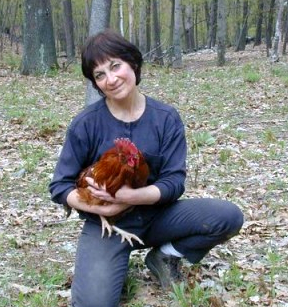

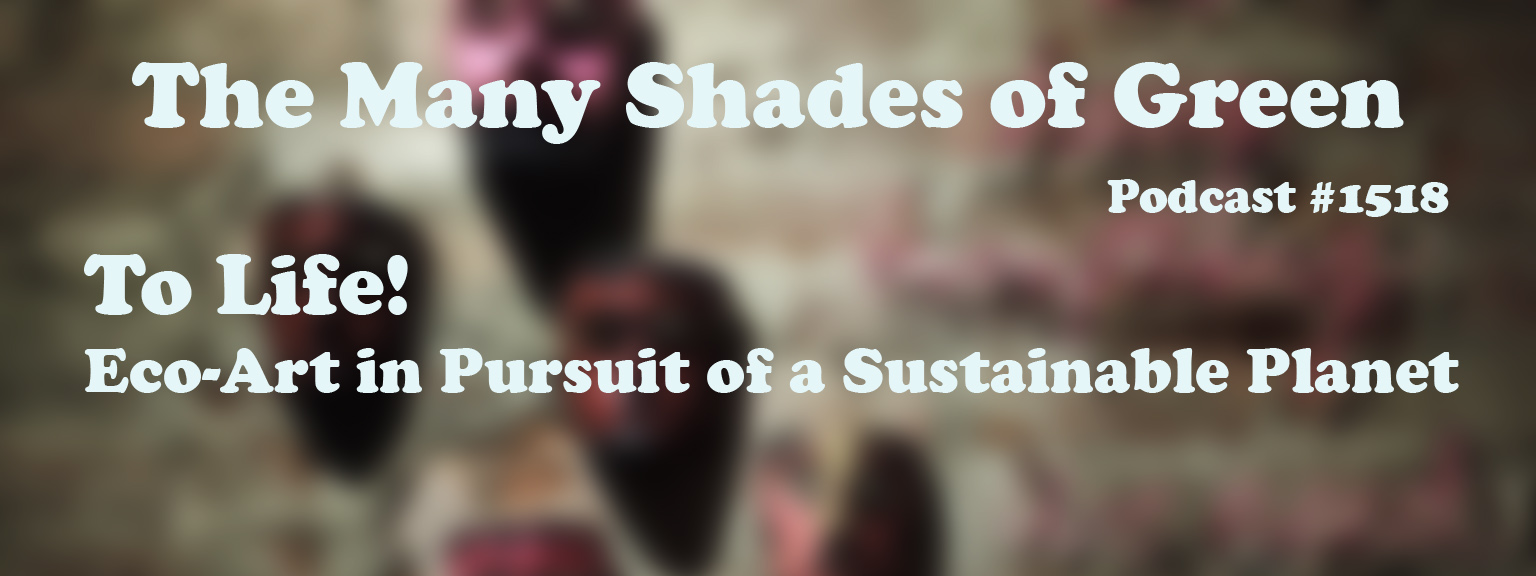
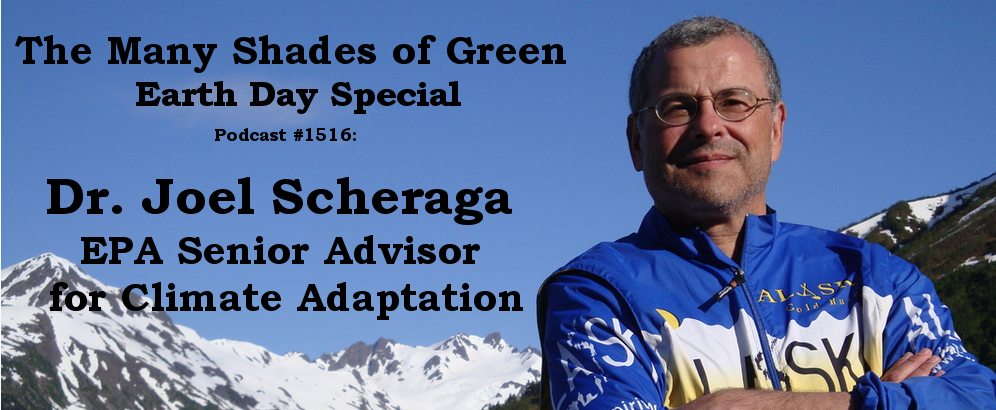
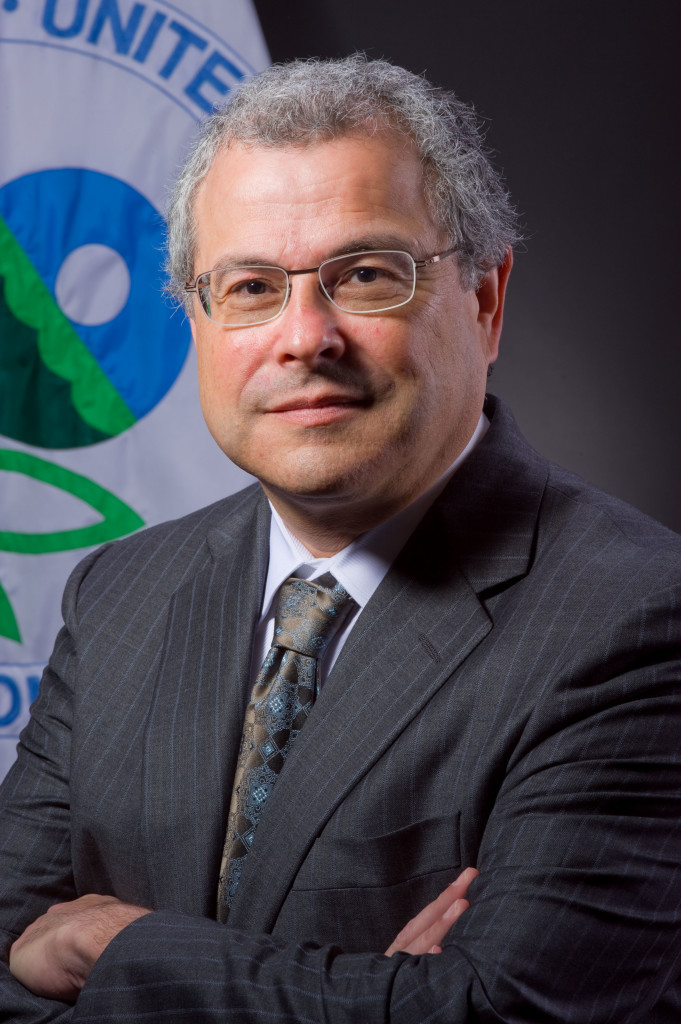 The First Earth Day took place on April 22,1970 and on this week’s episode, we celebrate the 45th Anniversary of Earth Day, as well as the 45th year of the EPA, with special guest, Dr. Joel Scheraga, Senior Advisor for Climate Adaptation at the U.S. Environmental Protection Agency. The climate is changing, and we have to adapt to the results of those changes, which are coming in the form of more intense weather, super storms, droughts, pollution, and an increase in greenhouse gas emissions. The change in climate is causing the oceans to get warmer, and
The First Earth Day took place on April 22,1970 and on this week’s episode, we celebrate the 45th Anniversary of Earth Day, as well as the 45th year of the EPA, with special guest, Dr. Joel Scheraga, Senior Advisor for Climate Adaptation at the U.S. Environmental Protection Agency. The climate is changing, and we have to adapt to the results of those changes, which are coming in the form of more intense weather, super storms, droughts, pollution, and an increase in greenhouse gas emissions. The change in climate is causing the oceans to get warmer, and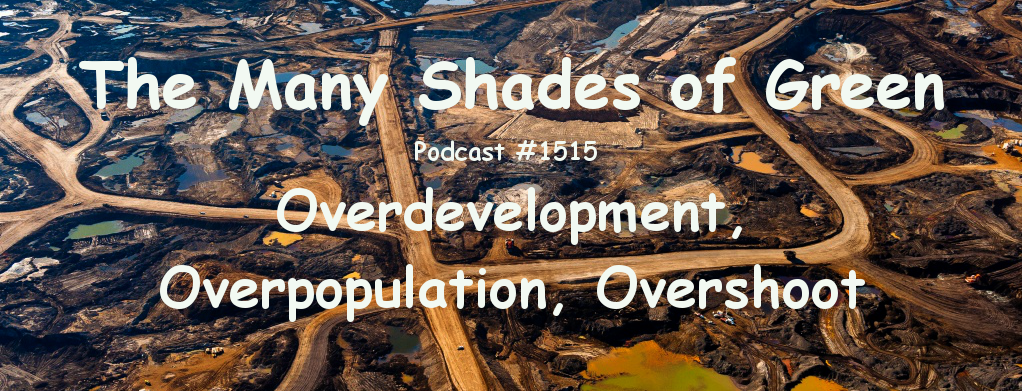
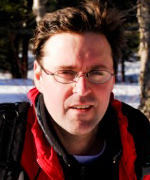 Overdevelopment, Overpopulation, Overshoot – Tom Butler’s new large format coffee table book, tells the story of how population increase, and the rise of the industrial complex, has led to social, economic and environmental problems world wide. The phrase ” a picture’s worth a thousand words” is most evident in the photos taken during this three year journey to expose man’s quest to dominate the planet, and leave sprawl, over growth, disease and destruction in its path. We over indulge, over-plug, and over saturate this beautiful planet, with blatant di
Overdevelopment, Overpopulation, Overshoot – Tom Butler’s new large format coffee table book, tells the story of how population increase, and the rise of the industrial complex, has led to social, economic and environmental problems world wide. The phrase ” a picture’s worth a thousand words” is most evident in the photos taken during this three year journey to expose man’s quest to dominate the planet, and leave sprawl, over growth, disease and destruction in its path. We over indulge, over-plug, and over saturate this beautiful planet, with blatant di
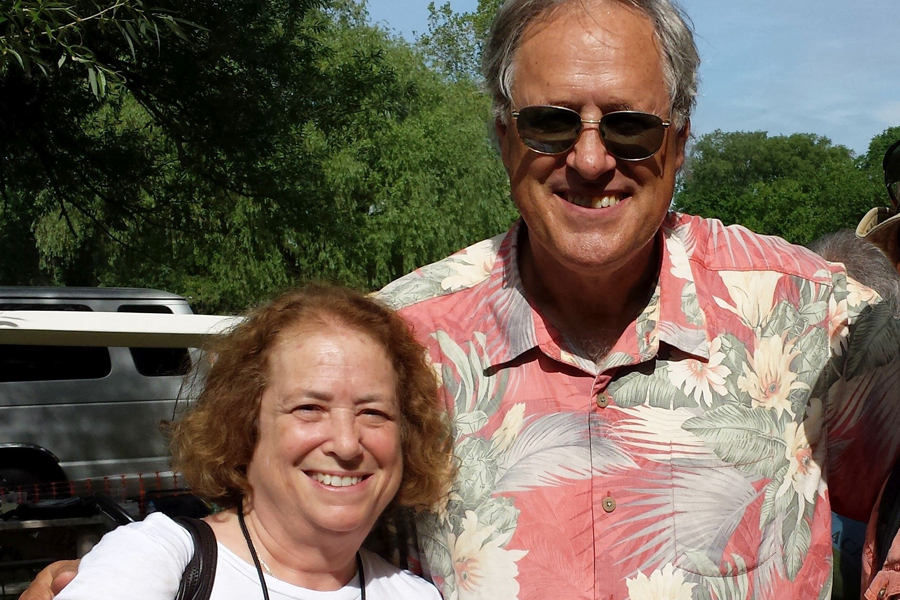 The Clearwater Festival was like stepping into a time warp and re-living moments of Peace, Love and Understanding through music, activism and innovation. It was wonderful to roam the festival grounds at Croton Point Park with my co-producer Abba Carmichael, my sound engineer Brian Horowitz, and summer research assistant Marco Spodek. We met and chatted with wonderful musical artists Dar Williams, Tom Chapin and more. The festival was dedicated to the late and legendary, Pete Seeger, who was the original founder of the festival. Various versions of the song Wimoweh/The Lion Sleeps Tonight, a song near and dear to me, filled the air throughout the day. I highly recommend attending the festival, so check out
The Clearwater Festival was like stepping into a time warp and re-living moments of Peace, Love and Understanding through music, activism and innovation. It was wonderful to roam the festival grounds at Croton Point Park with my co-producer Abba Carmichael, my sound engineer Brian Horowitz, and summer research assistant Marco Spodek. We met and chatted with wonderful musical artists Dar Williams, Tom Chapin and more. The festival was dedicated to the late and legendary, Pete Seeger, who was the original founder of the festival. Various versions of the song Wimoweh/The Lion Sleeps Tonight, a song near and dear to me, filled the air throughout the day. I highly recommend attending the festival, so check out 
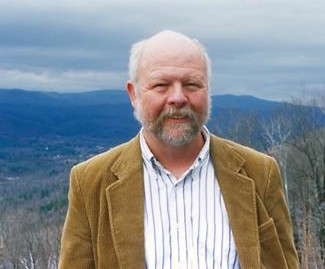 What comes first, the Earth or Earthlings? There are a lot of us humans on the planet, and we have to start thinking about keeping our numbers down. Join me and my guest Dave Foreman, activist, author, and founder of Earth First!, the Wildlands Project, and the Rewilding Institute, as we discuss his latest work, a new revised of edition of his popular title, MAN SWARM: How Overpopulation is Killing the Wild World, which is co-authored with Laura Carroll, author of The Baby Matrix. Population is one factor in the environmental degradation of the planet. Should there be a one child policy in the US or should we stop having babies altogether? What can be done to solve this problem? Tune in to find out. For more information go to
What comes first, the Earth or Earthlings? There are a lot of us humans on the planet, and we have to start thinking about keeping our numbers down. Join me and my guest Dave Foreman, activist, author, and founder of Earth First!, the Wildlands Project, and the Rewilding Institute, as we discuss his latest work, a new revised of edition of his popular title, MAN SWARM: How Overpopulation is Killing the Wild World, which is co-authored with Laura Carroll, author of The Baby Matrix. Population is one factor in the environmental degradation of the planet. Should there be a one child policy in the US or should we stop having babies altogether? What can be done to solve this problem? Tune in to find out. For more information go to 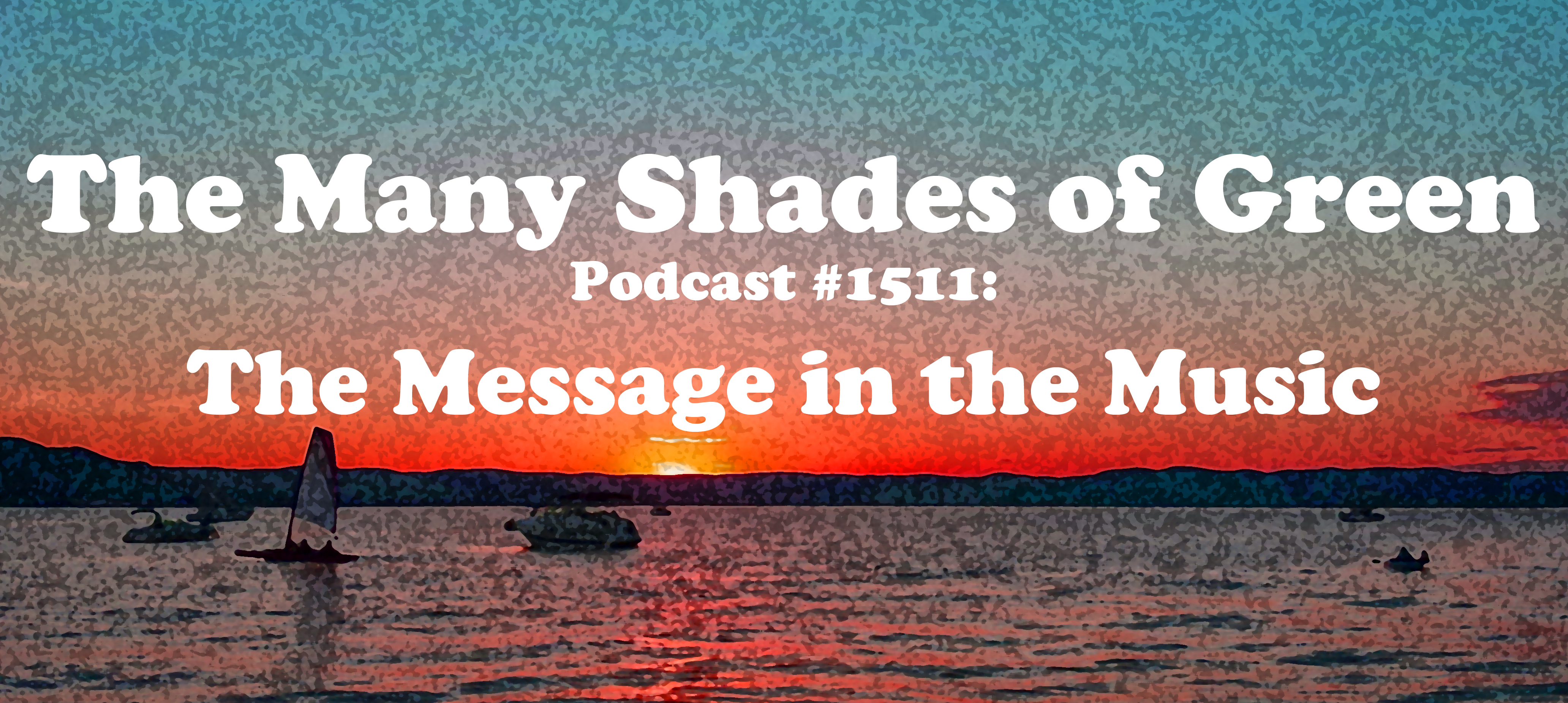
 “We are keepers of the planet, we are protectors of the water, the land, the air.” Join me and my guest Don Raskopf, a member of the Board of Directors for Clearwater, and co-founder of Ban Fracking Now, as we delve into topics of fracking, train transportation of bakken crude oil, green building and the musical connection to Clearwater via one its founders, Pete Seeger. Music continues to be the message, as it is the force behind social movement and activism. For more information about Clearwater and the upcoming Clearwater Festival go to
“We are keepers of the planet, we are protectors of the water, the land, the air.” Join me and my guest Don Raskopf, a member of the Board of Directors for Clearwater, and co-founder of Ban Fracking Now, as we delve into topics of fracking, train transportation of bakken crude oil, green building and the musical connection to Clearwater via one its founders, Pete Seeger. Music continues to be the message, as it is the force behind social movement and activism. For more information about Clearwater and the upcoming Clearwater Festival go to 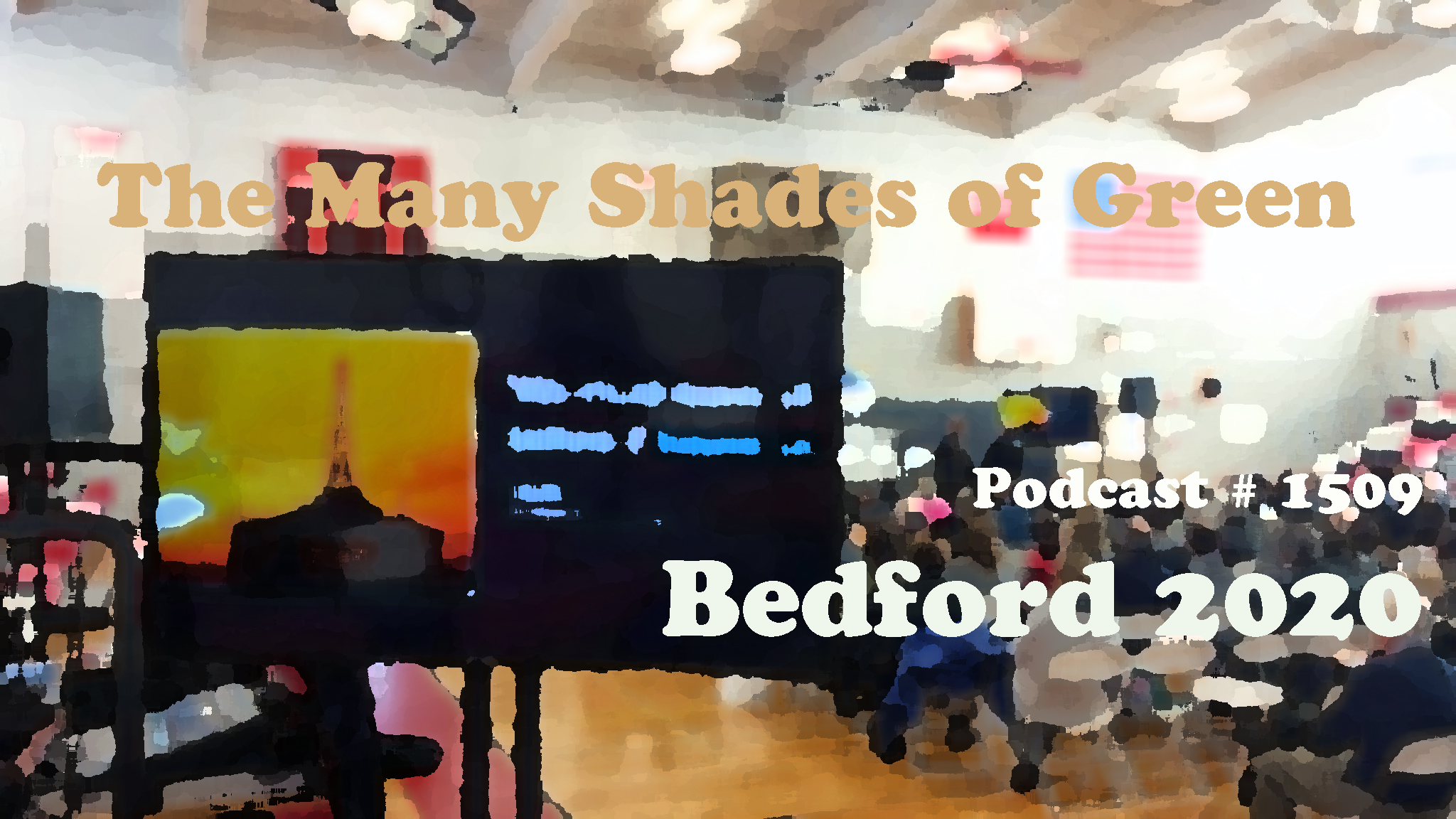
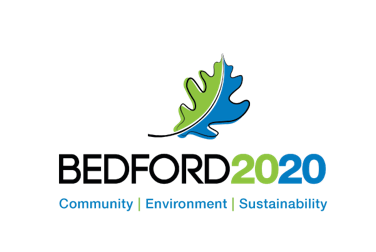 This week’s program takes place at the Bedford 2020 Summit and Solar Action Day. We spoke to Andrew Revkin, writer of the Dot Earth Blog for the New York Times, as well as Peter Olmsted, East Coast Regional Director for Vote Solar. We also spoke to Mayor Michael Cindrich of Mt. Kisco, NY about the solar projects on his agenda. Keynote Speaker Amory Lovins, of The Rocky Mountain Institute, spoke about new energy technologies that are on the horizon for the future of electricity. It was a gathering of innovators, educators and community, all working to promote solar and other renewable energy, in an effort to help create actionable solutions to green house gas emissions. A special thank you to Heather Flournoy for her hard work and hospitality. For more information go to
This week’s program takes place at the Bedford 2020 Summit and Solar Action Day. We spoke to Andrew Revkin, writer of the Dot Earth Blog for the New York Times, as well as Peter Olmsted, East Coast Regional Director for Vote Solar. We also spoke to Mayor Michael Cindrich of Mt. Kisco, NY about the solar projects on his agenda. Keynote Speaker Amory Lovins, of The Rocky Mountain Institute, spoke about new energy technologies that are on the horizon for the future of electricity. It was a gathering of innovators, educators and community, all working to promote solar and other renewable energy, in an effort to help create actionable solutions to green house gas emissions. A special thank you to Heather Flournoy for her hard work and hospitality. For more information go to 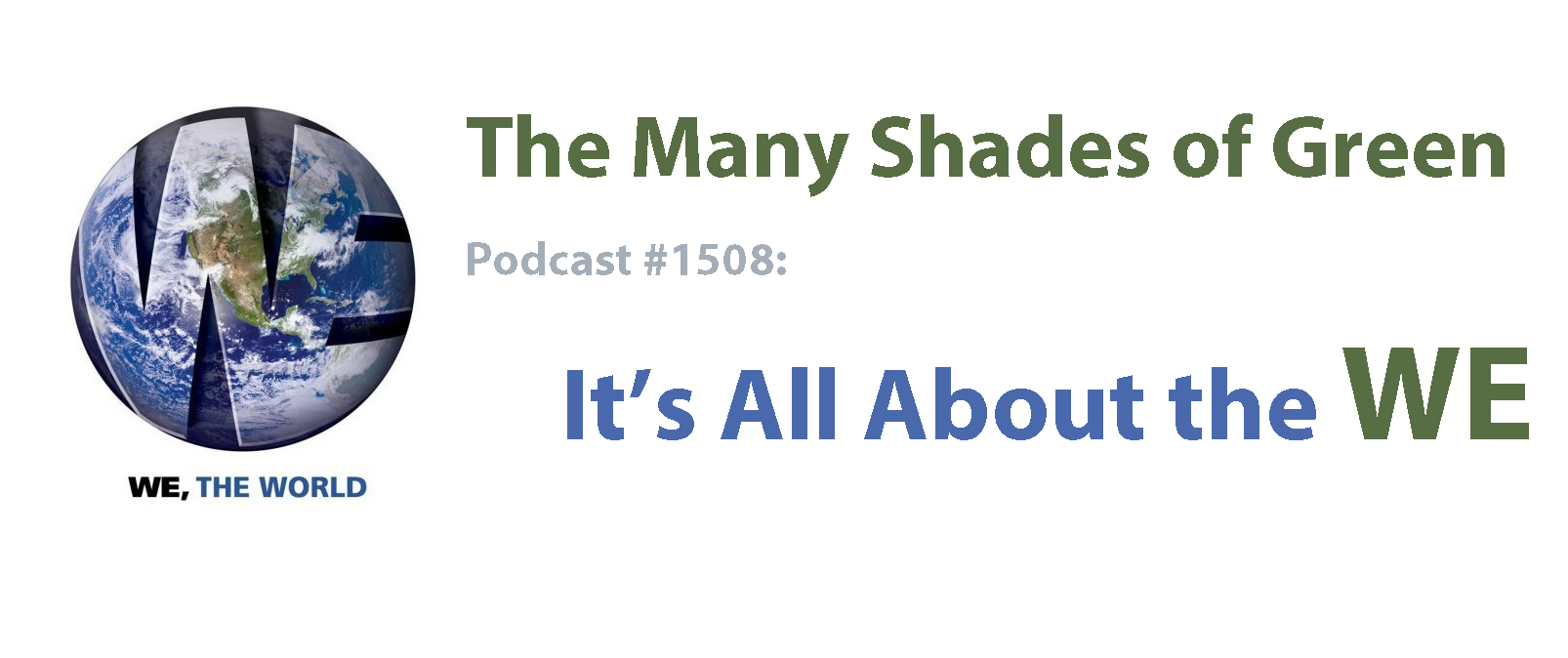
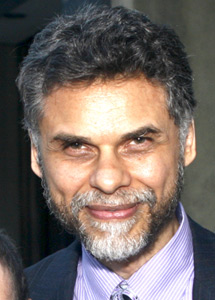 We are all interconnected to one another, yet the cultural mindset continues to focus on the me, rather than the we. My guest this week, Rick Ulfik, founder of We the World, is moving to change the paradigm by promoting awareness of the need for creating a more humane spirit, by enlisting change agents from around the globe, to build a more peaceful, sustainable and empathetic world. We the World works to develop global networks of collaboration via the 11 Days of Global Unity, and 11 Ways to Change the World. It’s time for the collective will of the citizenry to use the power of WE! For more information go to
We are all interconnected to one another, yet the cultural mindset continues to focus on the me, rather than the we. My guest this week, Rick Ulfik, founder of We the World, is moving to change the paradigm by promoting awareness of the need for creating a more humane spirit, by enlisting change agents from around the globe, to build a more peaceful, sustainable and empathetic world. We the World works to develop global networks of collaboration via the 11 Days of Global Unity, and 11 Ways to Change the World. It’s time for the collective will of the citizenry to use the power of WE! For more information go to 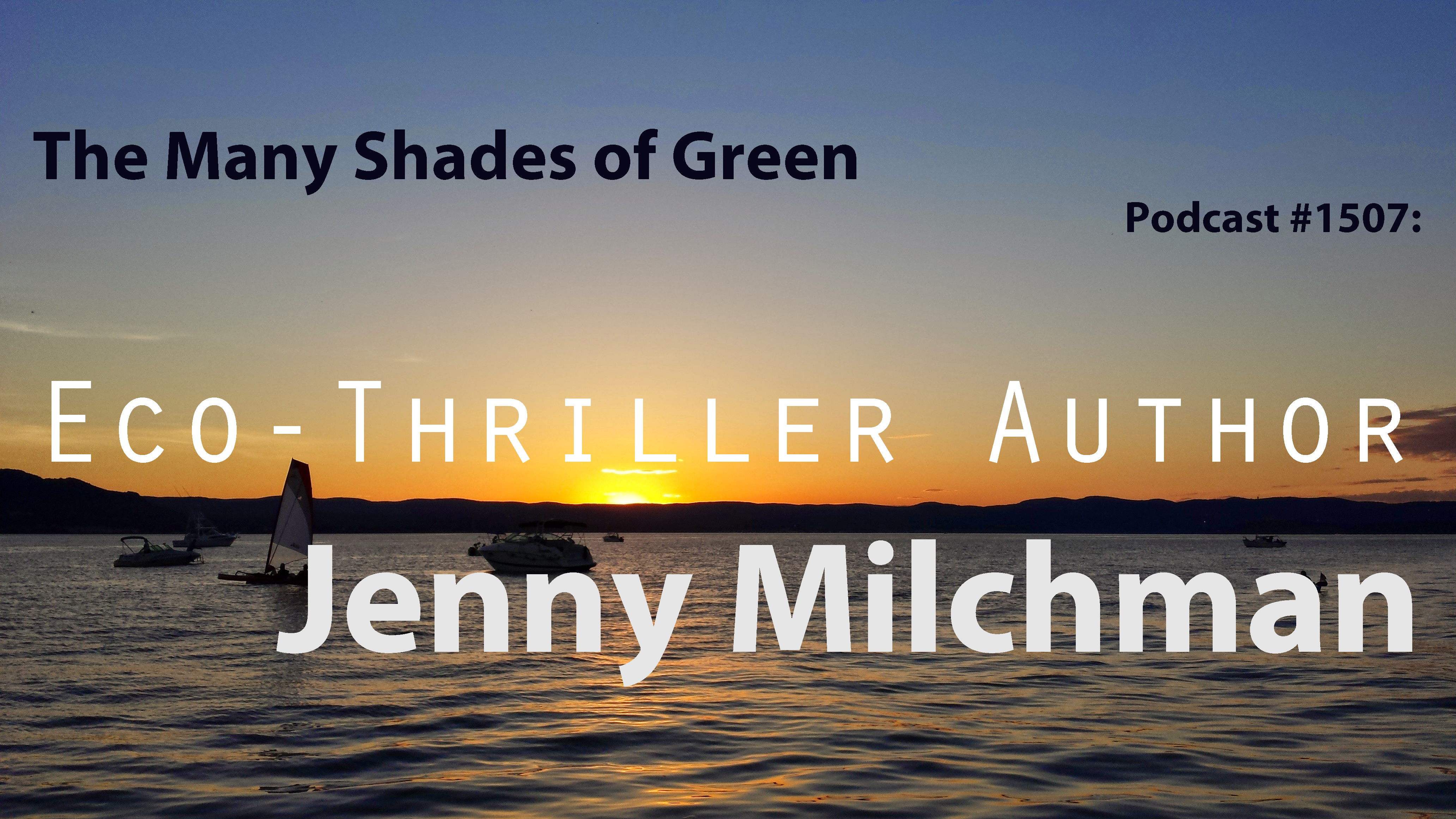
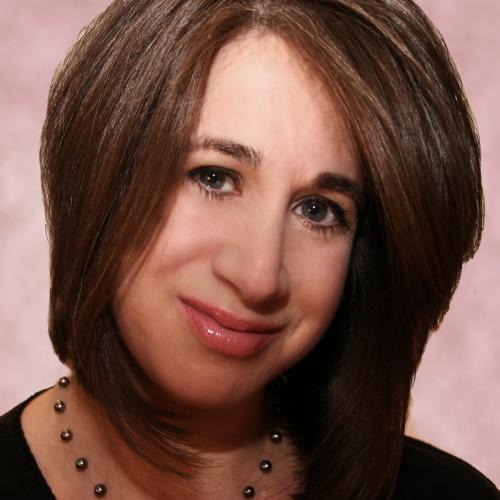 Join me and my guest, author
Join me and my guest, author 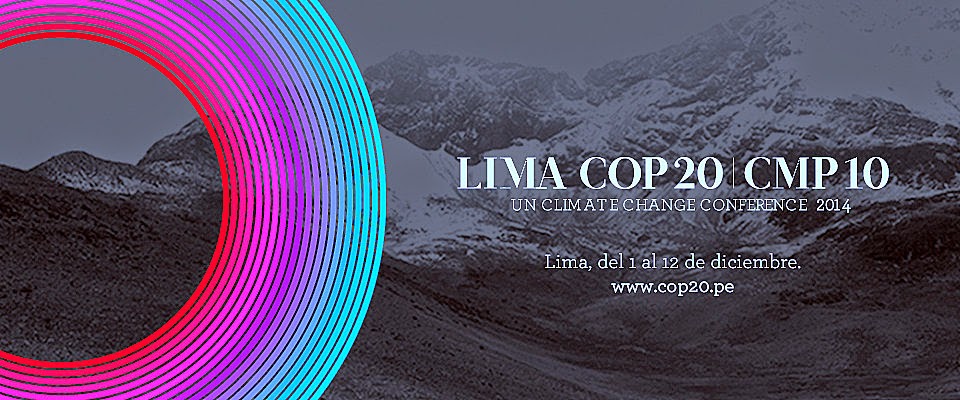
 By
By 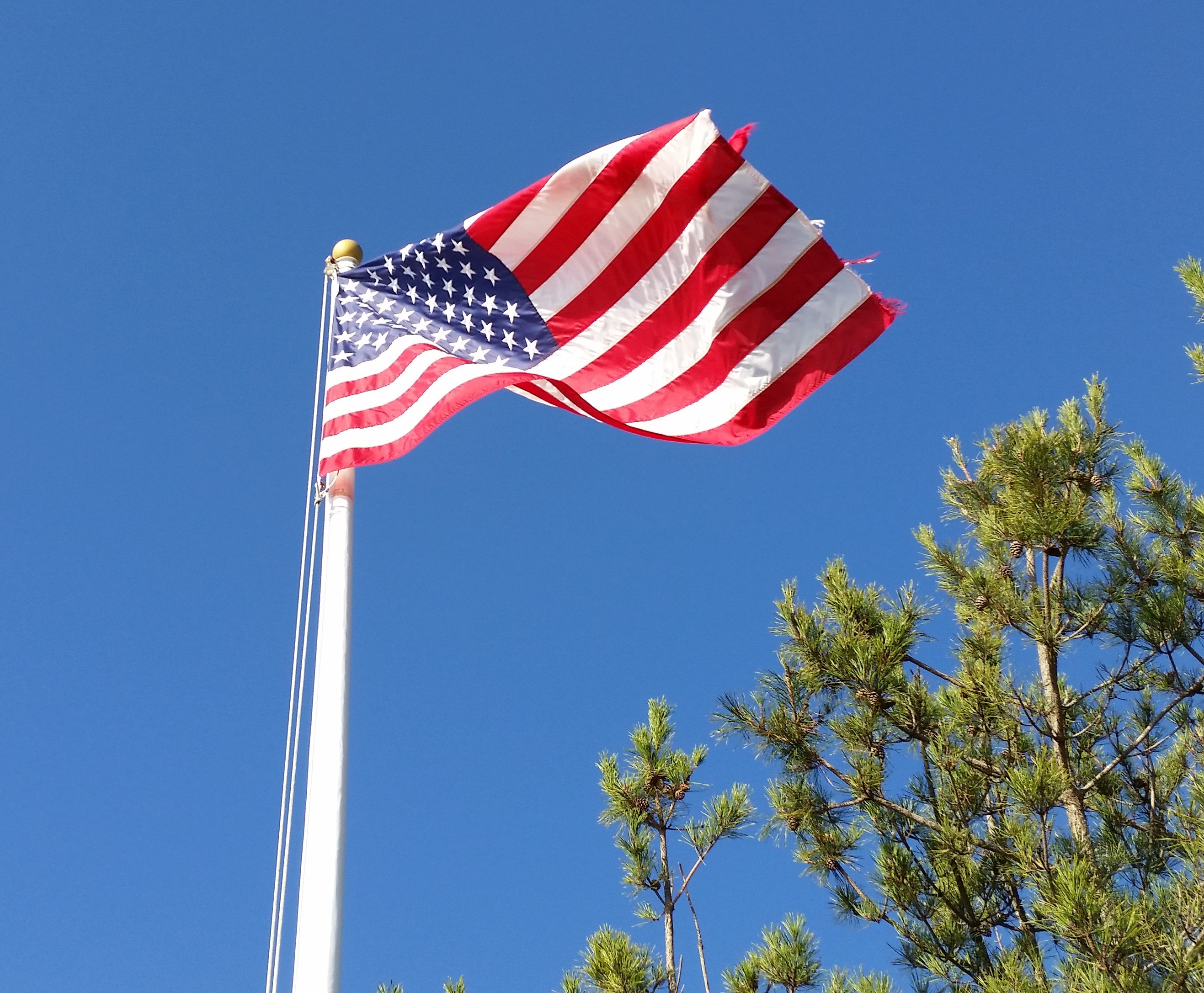
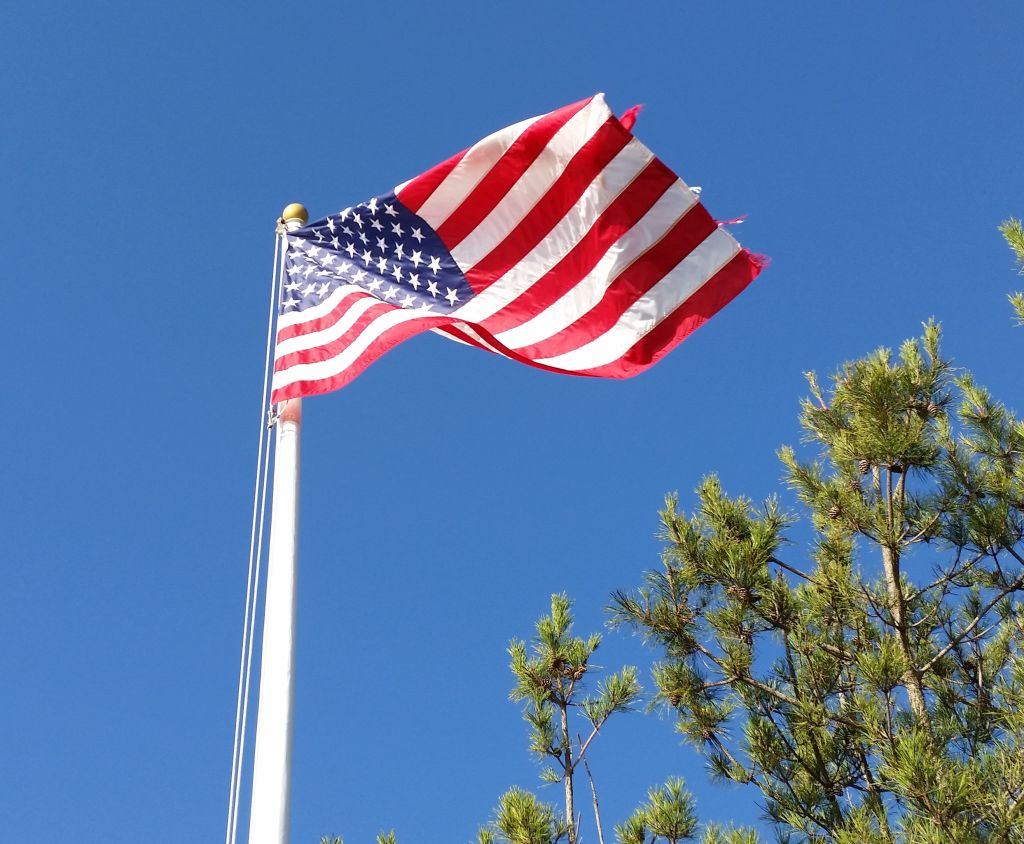 By
By  Long story short, America’s reckless agricultural techniques and lack of quality governmental oversight has created a situation in which Americans are falsely assured by their own government about the safety of their food. It is a situation that still has its solutions though. What we need is mass education which will contribute to a snowballing in consumer awareness about the importance of the local and sustainable food movement. It has started to take hold around the world but with EVERONE’S help, we will begin to change. Their have been sparks of change so far, but we need to keep the passion strong to get the fire roaring. As we eat locally and buy from small farms, food becomes much healthier, less mysterious, and more tasty. While food transportation costs and emissions are reduced, air becomes cleaner in cities and communities become stronger through community farms and other
Long story short, America’s reckless agricultural techniques and lack of quality governmental oversight has created a situation in which Americans are falsely assured by their own government about the safety of their food. It is a situation that still has its solutions though. What we need is mass education which will contribute to a snowballing in consumer awareness about the importance of the local and sustainable food movement. It has started to take hold around the world but with EVERONE’S help, we will begin to change. Their have been sparks of change so far, but we need to keep the passion strong to get the fire roaring. As we eat locally and buy from small farms, food becomes much healthier, less mysterious, and more tasty. While food transportation costs and emissions are reduced, air becomes cleaner in cities and communities become stronger through community farms and other 
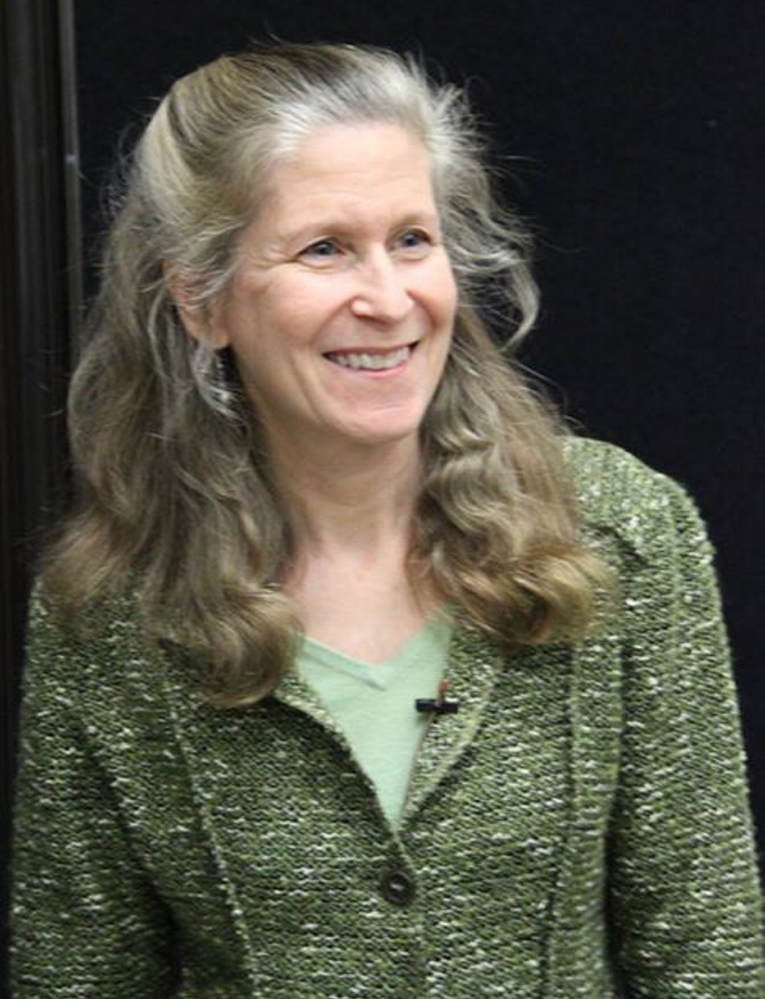 What connection does Star Trek have to humane education? What needs to be done to our education system to foster creativity, compassion, ethics, empathy and critical thinking? Students need to be better prepared to be problem solvers and thinkers. Our guest this week is Zoe Weil, co-founder and president of the Institute for Humane Education (IHE). Zoe and I discuss the importance of transforming education, via concepts that teach children to be more caring, nurturing, and curious. While teaching the three R’s is important, humane education will lead to a more peaceful an
What connection does Star Trek have to humane education? What needs to be done to our education system to foster creativity, compassion, ethics, empathy and critical thinking? Students need to be better prepared to be problem solvers and thinkers. Our guest this week is Zoe Weil, co-founder and president of the Institute for Humane Education (IHE). Zoe and I discuss the importance of transforming education, via concepts that teach children to be more caring, nurturing, and curious. While teaching the three R’s is important, humane education will lead to a more peaceful an